If you’ve ever had to pause your Zoom call because your dog was passionately alerting you to a passing leaf, you’re not alone.
Dogs bark for all kinds of reasons — excitement, fear, boredom, or simply because they can. But some breeds take their vocal skills to the next level. In fact, certain small to medium breeds are known for barking more frequently than others, especially when they’re left alone or spot something unfamiliar in their territory.
Whether you’re looking for a loyal watchdog, a spirited companion, or just a pup who really wants to narrate your entire day, this list is for you. These nine barky and alert breeds may not be the quietest roommates, but they sure know how to keep life interesting.
Alert and Barky Dog Breeds
1. Scottish Terrier
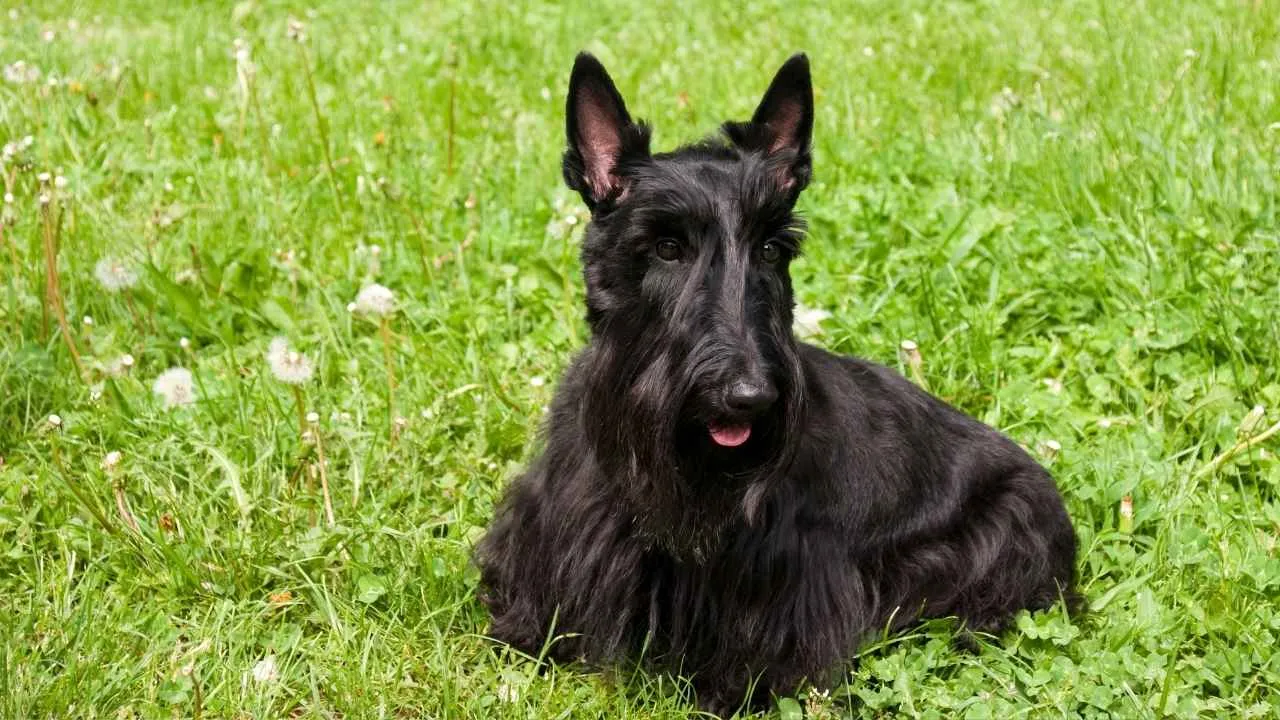
Scottish Terriers are small but mighty pups with a strong-willed personality. Known for their confident and independent nature, these dogs tend to have a bit of a stubborn streak. They’re not your typical lap dog, but they’re incredibly loyal and enjoy spending time with their favorite human.
When it comes to alertness, the Scottish Terrier doesn’t miss a beat. They have a keen sense of hearing and can easily detect changes in their environment. A passing car or an unfamiliar visitor often triggers their attention, and they’ll let you know with a sharp bark.
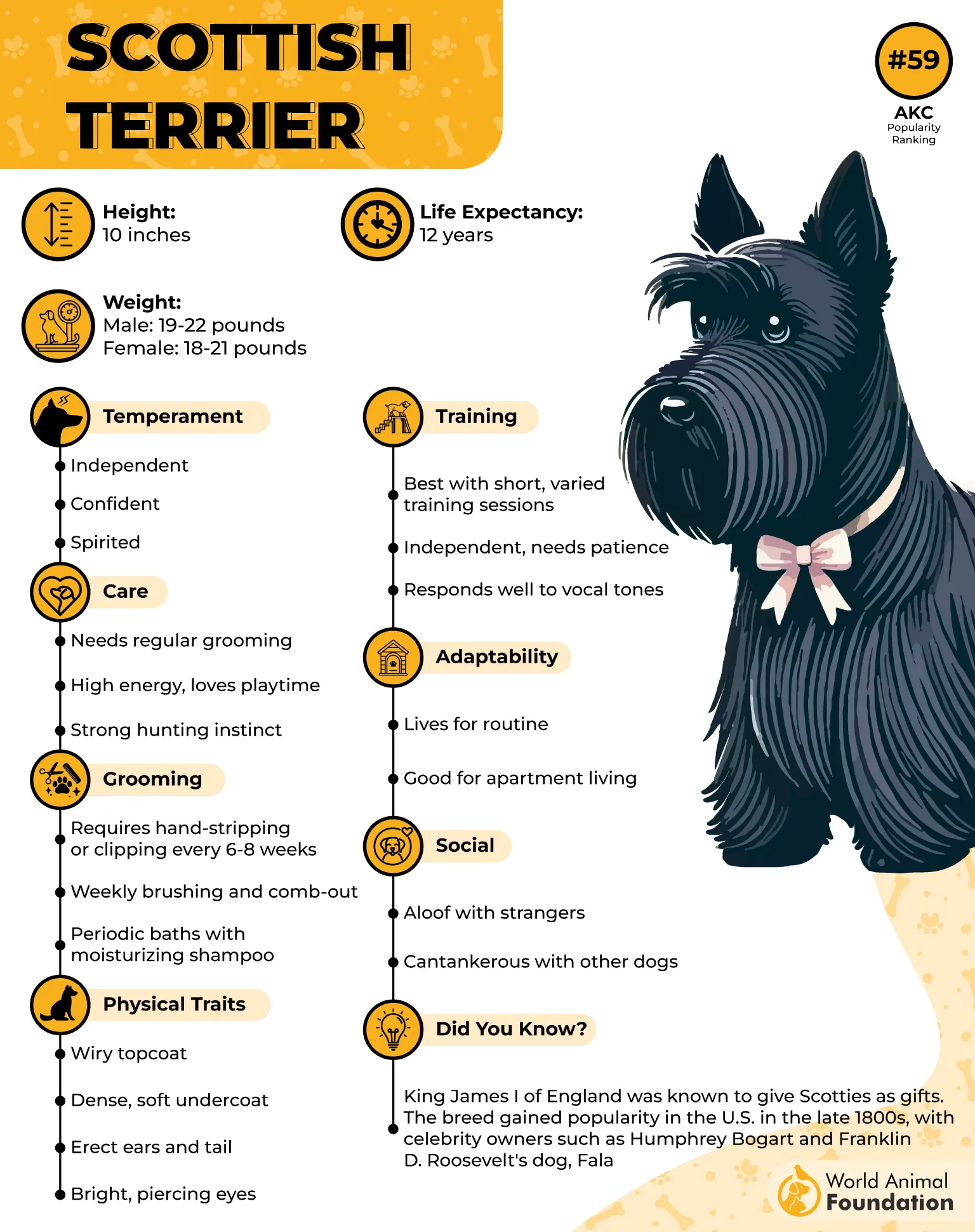
These dogs are prone to excessive barking, especially when something catches their interest. Their loud bark is often their go-to response to unfamiliar sounds or sights. Although their barking is not constant, it can be intense, especially if they feel the need to guard their space.
Scottish Terriers adapt well to a variety of living situations. They’re compact and can comfortably live in both apartments and houses. However, if you live in a building with thin walls, their vocal nature might become an issue for neighbors due to their occasional loud barking.
Training a Scottish Terrier around their barking behavior requires patience and consistency. Socializing them early on and reinforcing calm behavior helps reduce their tendency for excessive barking, as stated in PetMD. While they are highly intelligent, their stubbornness can make training a bit of a challenge for new dog owners.
2. Chihuahua
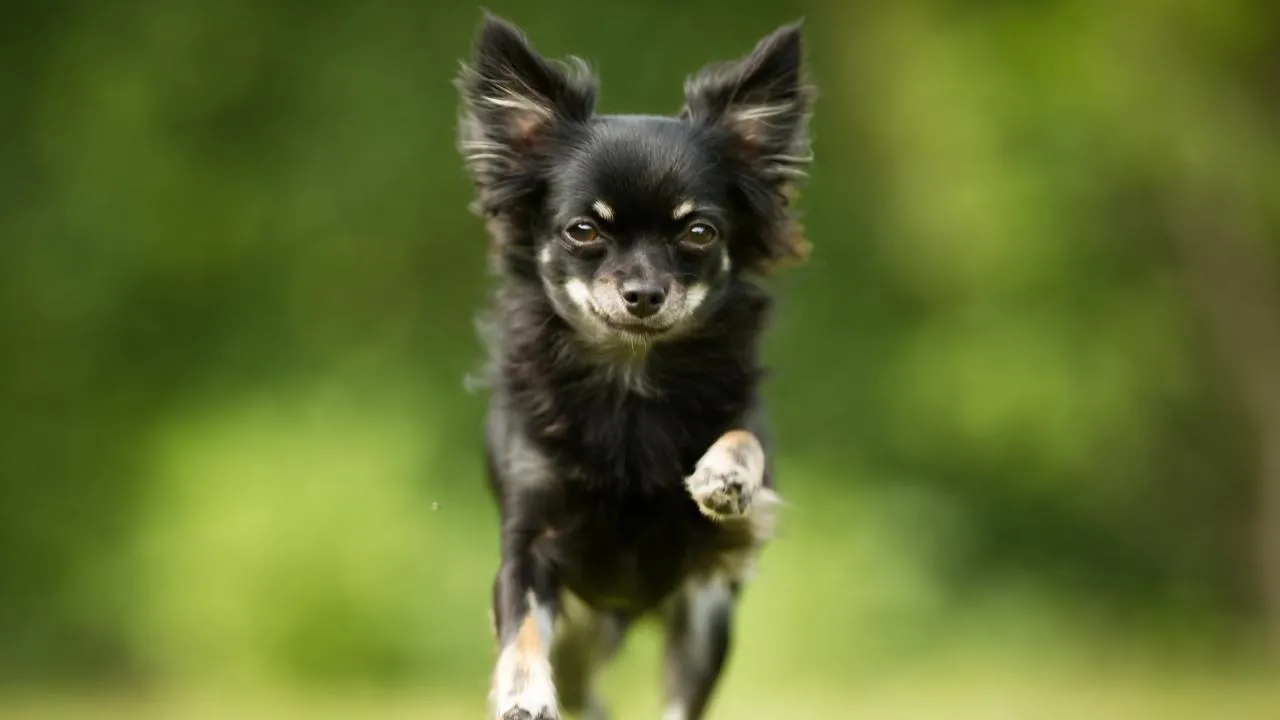
Chihuahuas may be small, but they sure know how to make a big impression! With their larger-than-life personalities, these tiny dogs are full of confidence. Often seen strutting around like they own the place, they’ll remind you constantly that good things come in small, feisty packages.
Chihuahuas are incredibly alert and protective, often on high alert at all times, as mentioned in the AKC. A delivery truck down the street or a squirrel sneaking by will have them on guard, ready to alert you with their keen senses. These little watchdogs are always tuned in to their surroundings.
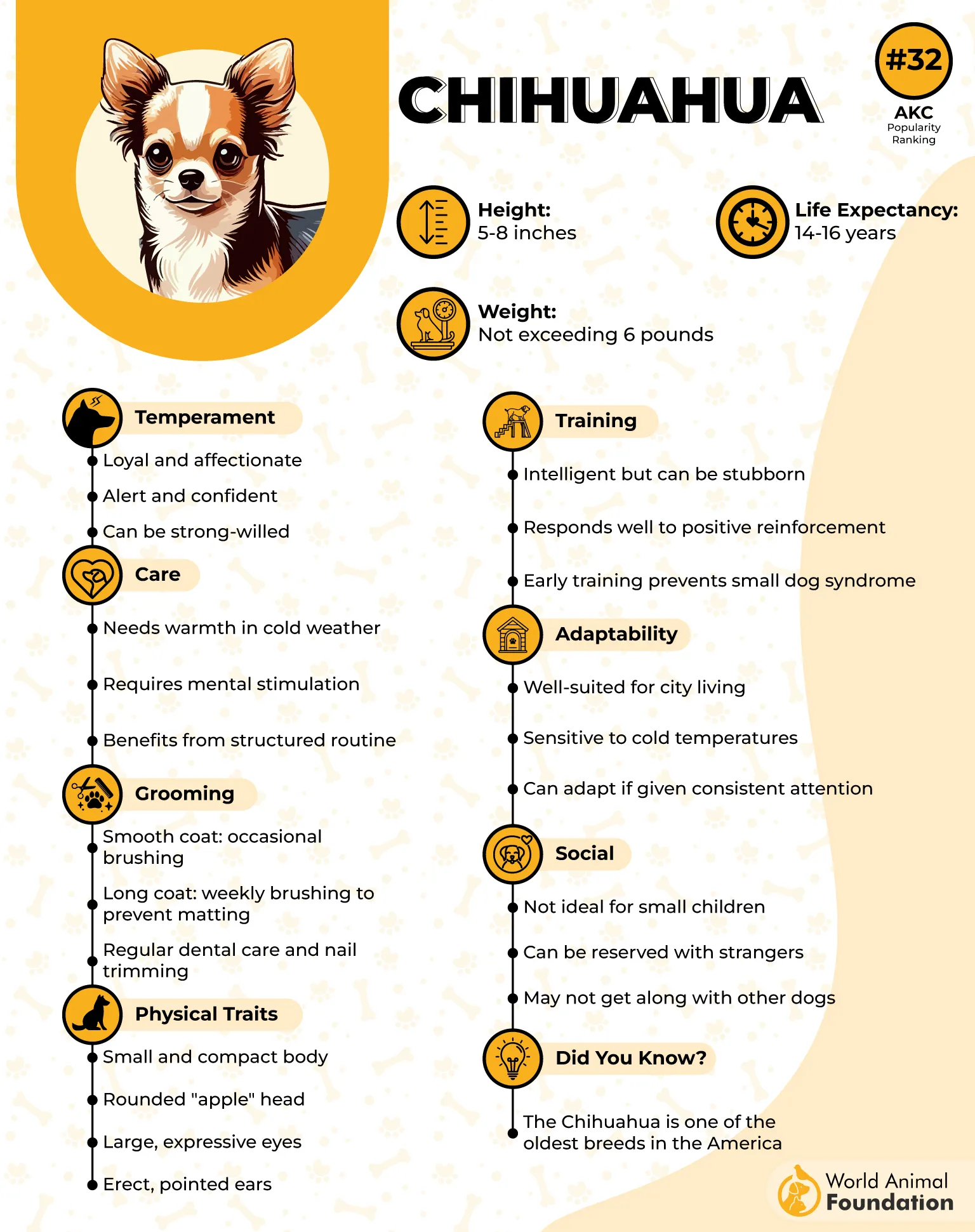
Barking is a big part of the Chihuahua’s repertoire. These are some of the noisiest dogs, with a bark that can rival much larger breeds. Their persistent barking often comes into play when they feel threatened or even just excited about something new in their environment.
While these dogs are perfect for apartment living due to their small size, they can be a challenge for close neighbors. The Chihuahua’s love of barking loudly at any passing person or dog may cause some noise complaints, making them better suited for quieter environments where their vocal tendencies can be controlled.
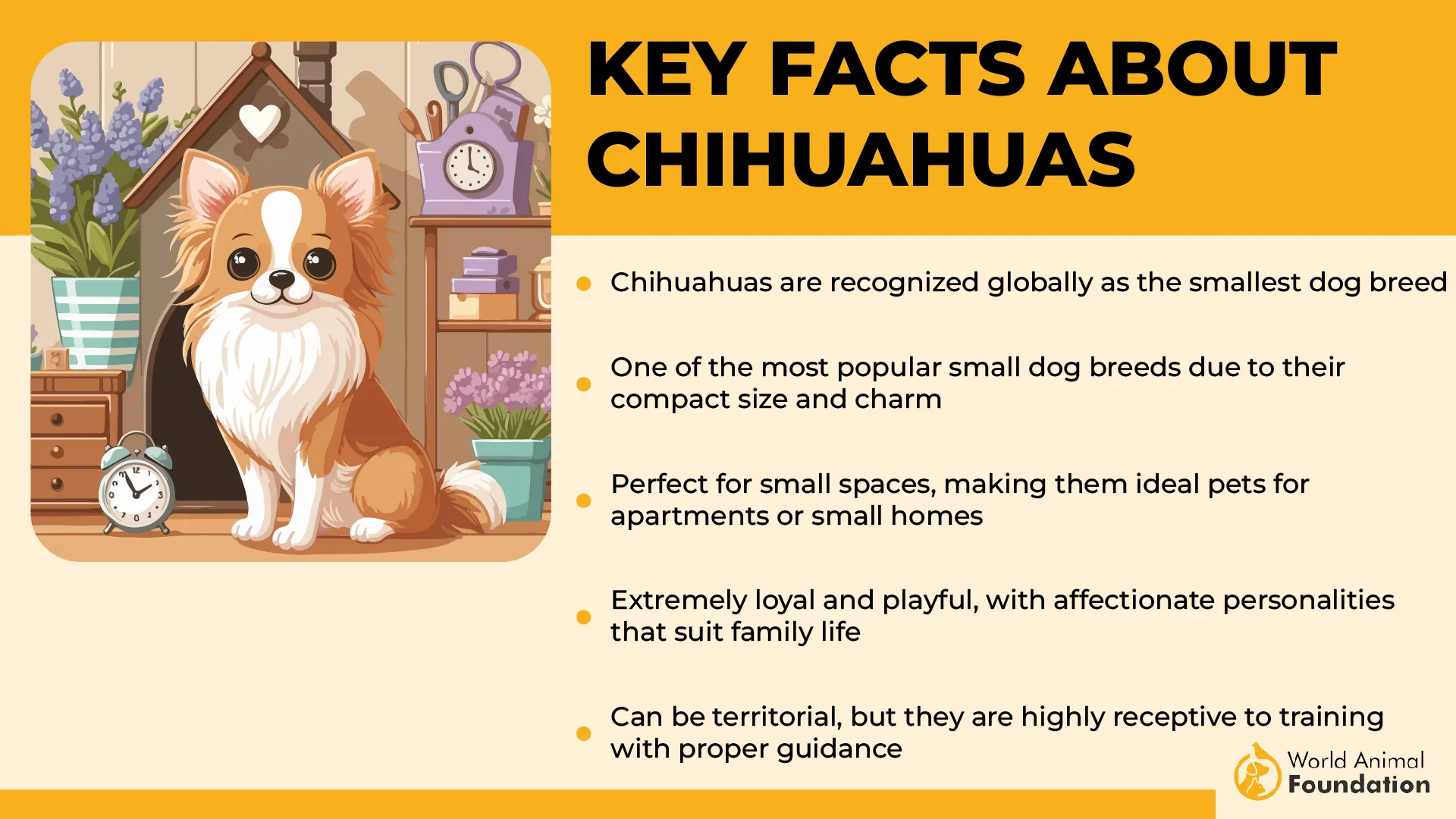
Training a Chihuahua to manage their vocal behavior is a bit of a challenge. Dog lovers often find that consistency and patience are key to curbing their persistent barking. Early socialization and positive reinforcement can help tone down the noise, but their lively spirit will always shine through.
3. German Shepherd

German Shepherds are like the superheroes of the dog world—loyal, brave, and always ready for action. With a protective nature and sharp instincts, they’ve earned their reputation as some of the most intelligent and hardworking dogs around. These pups are always on the go, making them a perfect match for active owners.
Alertness is second nature for these dogs. They’re incredibly tuned into their surroundings and quick to respond to anything out of the ordinary. Whether it’s a knock at the door or a rustling in the bushes, you can count on your German Shepherd to be the first to investigate and sound the alarm.
Frequent barking is common for German Shepherds, especially when they feel their family needs protection. Their vocal tendencies aren’t just a way of saying hello—they’re their way of keeping you informed about every little thing they think is important. Their deep bark is enough to make anyone pay attention.

While these dogs thrive in homes with ample space, they can do well in apartments if given enough exercise and mental stimulation. However, their protective nature might make them more cautious of strangers in smaller living situations, so it’s essential to provide training to avoid any unnecessary barking.
Training a German Shepherd to manage their vocal behavior is key. Originally bred for guarding, these dogs can be trained to control their frequent barking with proper socialization. Once they know what’s expected, they’ll happily comply—just don’t be surprised if they always keep an eye out for anything that doesn’t seem quite right.
4. Miniature Pinscher
Miniature Pinschers may be small in size, but they sure make up for it in spunk and attitude! Known for their fearless personality, these little dogs think they’re the biggest in the room, ready to take on anything that comes their way. Their boldness makes them a favorite among canine lovers who enjoy a lively companion.
These pint-sized pups have an alertness that’s through the roof. They’re always on the lookout for anything unusual, whether it’s a squirrel in the yard or a new visitor at the door. Their instinct to protect and investigate kicks in fast, making them excellent watchdogs despite their size.
Miniature Pinschers are notorious for barking a lot, especially when they spot something they find suspicious. Their sharp barks are their way of making sure you’re aware of everything going on in their world. If you’re looking for a quiet dog, this breed might not be the best fit—these little guys have a big bark!
Thanks to their small size, they’re often well-suited for apartments or smaller living spaces, though they still need plenty of exercise and mental stimulation, as stated on WebMD. While they’re perfectly happy in an apartment, they’ll need daily walks and playtime to burn off their boundless energy.
Training a Miniature Pinscher to manage their vocal behavior can take a little patience, but it’s totally doable. They respond well to consistency and positive reinforcement, so with the right approach, you can help them understand when it’s time to stop barking at every little thing.
5. Beagle
Beagles are known for their friendly and outgoing nature, always eager to meet new people and animals. These little hounds are as charming as they are lovable, making them best friends to anyone lucky enough to have one. Their curiosity and playful spirit will keep you entertained all day long.
Always on alert, Beagles have a keen sense of smell that can be triggered by just about anything. Whether it’s a passing animal or a hidden treat, their nose leads the way. Their alertness is a big reason why they’re often used as detection dogs, but it also makes them quick to react to any change in their environment.
Barking is in a Beagle’s nature, and they don’t hesitate to announce their findings. Whether it’s a squirrel in the yard or the delivery person at the door, their barking is consistent and persistent. This can sometimes lead to more noise, so you’ll need to stay on top of their vocal tendencies.
Beagles do well in various living situations, from houses to apartments, thanks to their medium size and moderate energy level. However, apartment dwellers should be prepared for their noisy nature. A Beagle will need regular walks and playtime to keep them happy and healthy in a smaller space.
Training a Beagle to manage their barking can be a bit of a challenge, but with consistent guidance, it’s totally achievable. Socialization from an early age helps them understand when it’s appropriate to bark and when to stay quiet. Patience and persistence are key to working with this vocal breed.
6. Pomeranian
Pomeranians are small in size but bursting with personality! These fluffy little companions love to be the center of attention and have no problem showing off their charming, lively nature. Their spunky demeanor makes them the perfect pets for those who enjoy a dog full of energy and love.
Highly alert, Pomeranians are quick to notice any new sights or sounds. Their sharp senses make them excellent watchdogs, always on the lookout for unfamiliar activity. Whether it’s the mailman or a new neighbor, they’re always the first to sound the alarm.
Barking is one of the Pomeranian’s trademarks, and they do it with gusto. They’re known for their persistent barking, especially when they sense something amiss. However, their vocal tendencies can be managed with proper training and patience.
Despite their small size, Pomeranians thrive in a variety of living situations, including apartments. Their compact nature makes them ideal for people with limited space. Just be ready to provide them with plenty of stimulation and attention to keep them content.
When it comes to training, a Pomeranian can be a fun experience, as they are highly trainable and eager to please. However, it’s important to socialize them early, especially around other animals, to help manage their vocal behavior. A well-rounded Pomeranian knows when to bark and when to chill out.
7. Basset Hound
Basset Hounds are laid-back, lovable, and always seem to have a bit of a snooze on their mind. These dogs are calm and gentle, making them perfect for families who enjoy a slower pace. Despite their relaxed nature, they have an inquisitive side that keeps them curious about the world around them.
When it comes to alertness, Basset Hounds are surprisingly vigilant. Their excellent sense of smell means they’re always aware of any new scents in the air, as mentioned in Zealandia Pets. Whether it’s a neighbor’s footsteps or a passing squirrel, they’ll pick up on it right away, but don’t expect them to jump into action too quickly.
Barking isn’t a major hobby for Basset Hounds, but they do let you know when something’s up. Their barking tends to be a bit more reserved compared to other breeds, but it’s there when they need to alert you. However, they’re usually content to lounge around until something really catches their attention.
While they’re generally easygoing, Basset Hounds fit well into larger homes or houses with yards, where they can explore and sniff to their heart’s content. They’re not the type of dog who will mind being cooped up, but they appreciate having space to stretch those long legs.
Training a Basset Hound is all about patience and consistency. They can be a little stubborn, so socialization is key to helping them understand what’s acceptable, especially when it comes to their vocal behavior. With the right approach, they’ll become well-mannered members of the family.
8. Siberian Husky
Siberian Huskies are the ultimate adventure companions, full of energy and ready to take on the world. With their striking wolf-like appearance, they often have a regal yet mischievous look in their eyes. Known for their friendly and outgoing nature, these dogs are always up for some fun and excitement.
When it comes to alertness, Huskies are highly aware of their surroundings, especially when it comes to outdoor activities. They’re not shy about alerting you if something’s out of the ordinary. Whether it’s a passing car or the neighbor’s cat, they’ll be the first to let you know with their keen senses.
As for barking, Huskies are known for their vocal nature, but it’s usually in the form of howling rather than constant yapping. They enjoy “talking” to their humans and can often be heard expressing themselves in a variety of unique sounds. Don’t be surprised if they start howling when they’re feeling excited or want attention.
Huskies thrive in homes with ample space to roam, such as larger houses or properties with yards. Their high energy means they need room to run and play. Apartment living might not be the best fit for them, especially if they don’t have access to outdoor spaces for exercise.
Training a Husky requires patience and consistency, as they can be independent thinkers. While they’re social dogs, it’s important to expose them to other dogs and people early on to prevent them from becoming too vocal or stubborn. With the right training, they can be well-behaved and happy members of the family.
9. Dachshund
Dachshunds may be small in size, but they’re packed with personality! These little dogs are confident, curious, and always ready to go on an adventure, no matter how big or small. With their long bodies and shorter legs, they’re known for being bold and full of surprises.
When it comes to alertness, Dachshunds are surprisingly sharp for their size. They’re always on the lookout for anything unusual, especially when it comes to guarding their territory. Their keen senses make them excellent watchdogs, even if they don’t always know their own size.
Though they might be small, Dachshunds have surprisingly big voices. They love to bark, and when they do, you’ll know it! Whether it’s to announce a visitor or alert you to something they find interesting, their barking is definitely one way to make sure you’re paying attention.
These little dogs fit perfectly in both apartments and houses, especially if you can provide them with plenty of playtime and cozy spots to curl up. They don’t require tons of space, but they’ll definitely enjoy some time to stretch their legs, whether indoors or in a small yard.
Training a Dachshund can be a bit of a challenge, as they are known for their independent streak. With consistent guidance and early socialization, they can become well-behaved, but they may need extra patience when it comes to curbing their vocal habits. Socializing them with other pets and people will help keep their barking in check.
Conclusion
If you’re looking for a dog with a variety of personalities, small breeds like the Cavalier King Charles Spaniel and the Yorkshire Terrier offer everything from friendly companions to little barkers. These small dogs bring both joy and challenges, depending on what you’re seeking. However, several dog breeds offer a variety of characteristics worth considering.
When considering a guard dog, guard dog breeds like the Doberman Pinscher or the Belgian Malinois may come to mind for protection and alertness. These breeds possess strong protective instincts and a natural drive to safeguard their territory. But if you prefer a quieter breed, there are always options like a barkless dog.
For those who love a good balance of energy and affection, Bernese Mountain Dogs and gentle giants like them are perfect for families. These big dogs are calm, loyal, and devoted, making them ideal for home security while still offering love. You won’t go wrong with these lovable canines as part of your family.
It’s not always about size when it comes to protection, as even smaller breeds, such as the Cairn Terrier, offer plenty of spirit. Their fearless nature often leads them to be surprisingly strong watchdogs. Remember, not all small dogs are soft-spoken!
In the end, choosing the right dog depends on your lifestyle. If you need a working dog for active tasks, look at breeds like the Belgian Malinois or the Doberman. But for those preferring a more relaxed companion, the Cavalier King Charles Spaniel or a Yorkie could be your perfect fit.


